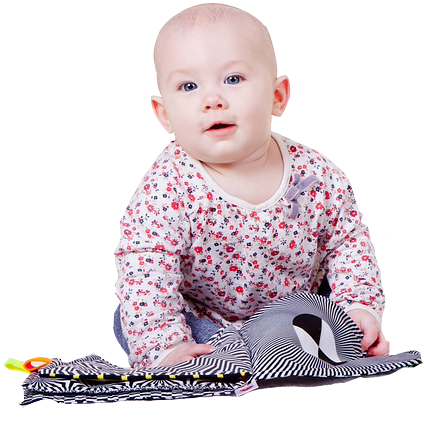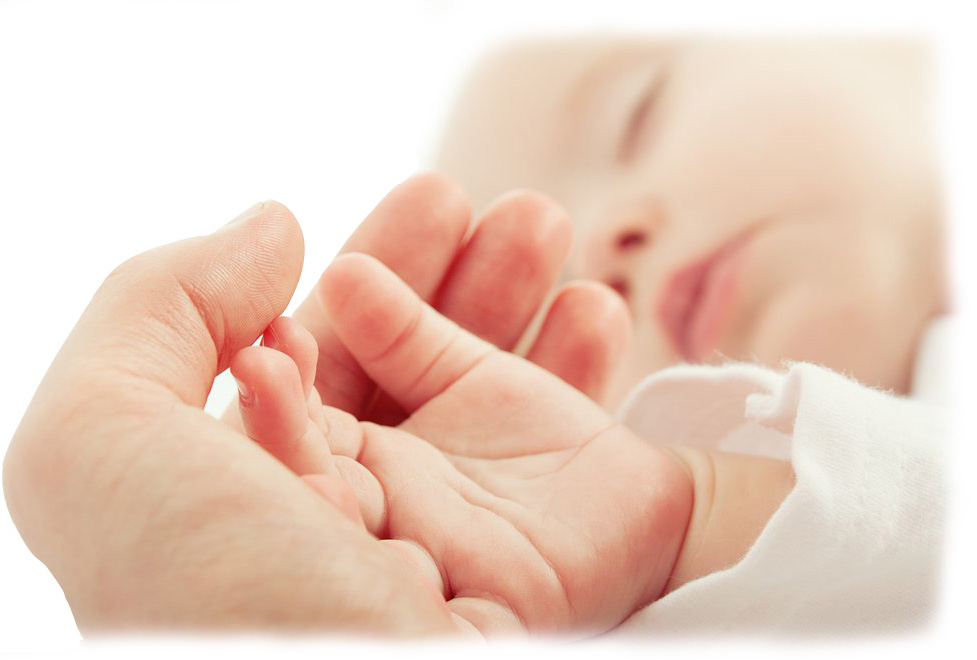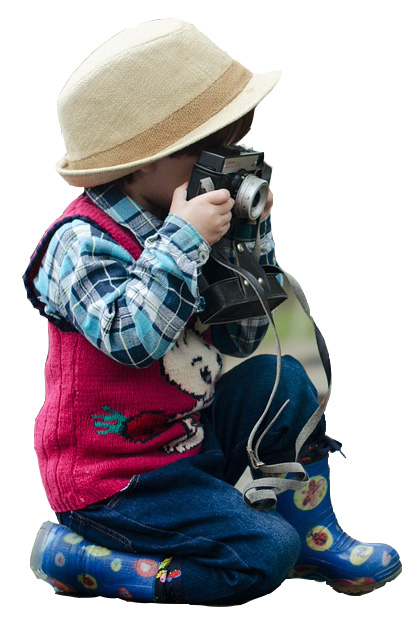Our mission is to provide a unified resource and research infrastructure for families in New Haven and the surrounding communities. If you are a new or expectant parent in the greater New Haven area, you and your family are eligible to join the Baby School. You will be enrolled into a free, online educational resource on parenting and child development created by researchers at Yale University; given longitudinal opportunities to directly participate in developmental research with your child; and more. Here are some of the research questions we are hoping to answer through this initiative!
How do babies learn from experience?
 Babies start learning the moment they first open their eyes. How do they learn so efficiently, eventually recognizing objects and producing their first words? To tackle these questions, we use a variety of techniques to determine how the infant mind changes during development. One technique measures how infants direct their attention to look at different types of objects (e.g., faces) using a device called an eye-tracker. Two other techniques — electro-encephalography (EEG) and near-infrared spectroscopy (fNIRS) — use sensors placed on a small hat on the infant’s head to record different measures of brain activity. All of these techniques are completely safe and baby-friendly. They enable us to look into the learning mechanisms at play while your child is trying to make sense of their world. In some of our recent studies, we have discovered that the infant brain is really good at making predictions about upcoming events, much like the adult brain. We are interested in how the brain is organized in young infants and how it changes with age as experience with language increases. Our studies have the potential to reveal the milestones that typically developing infants achieve at different ages, and establish benchmarks for the early diagnosis of language problems. Meet the members of our research team!
Babies start learning the moment they first open their eyes. How do they learn so efficiently, eventually recognizing objects and producing their first words? To tackle these questions, we use a variety of techniques to determine how the infant mind changes during development. One technique measures how infants direct their attention to look at different types of objects (e.g., faces) using a device called an eye-tracker. Two other techniques — electro-encephalography (EEG) and near-infrared spectroscopy (fNIRS) — use sensors placed on a small hat on the infant’s head to record different measures of brain activity. All of these techniques are completely safe and baby-friendly. They enable us to look into the learning mechanisms at play while your child is trying to make sense of their world. In some of our recent studies, we have discovered that the infant brain is really good at making predictions about upcoming events, much like the adult brain. We are interested in how the brain is organized in young infants and how it changes with age as experience with language increases. Our studies have the potential to reveal the milestones that typically developing infants achieve at different ages, and establish benchmarks for the early diagnosis of language problems. Meet the members of our research team!
Language Learning and Multisensory Brain (LLAMB) Lab
How can we optimize both parent and child well-being?
 How do we transition from adulthood to parenthood? How do we identify children at higher risk for developmental impairments early in life? We examine pregnancy and the postpartum period through an interdisciplinary lens to optimize our understanding of this critical period for both parents and children. Our measures capture the qualitative experience through speaking with expectant parents, as well as changing brain and behavior through neuroimaging and electroencephalographic techniques. An important component of our approach is to understand how changes in mood, as well as substance use, affect both parent and child. We have already developed a series of interventions for parents including an intensive home-based program called Minding the Baby. Our mission is to use our prenatal findings to reliably identify families that may need additional support and guidance during pregnancy and the postpartum period to optimize parent and child well-being. Meet the members of our team below!
How do we transition from adulthood to parenthood? How do we identify children at higher risk for developmental impairments early in life? We examine pregnancy and the postpartum period through an interdisciplinary lens to optimize our understanding of this critical period for both parents and children. Our measures capture the qualitative experience through speaking with expectant parents, as well as changing brain and behavior through neuroimaging and electroencephalographic techniques. An important component of our approach is to understand how changes in mood, as well as substance use, affect both parent and child. We have already developed a series of interventions for parents including an intensive home-based program called Minding the Baby. Our mission is to use our prenatal findings to reliably identify families that may need additional support and guidance during pregnancy and the postpartum period to optimize parent and child well-being. Meet the members of our team below!
The Before and After Baby Lab (the BABL)
What happens to early memories?
 How old were you in your first memory? Like most people, probably no younger than 3 or 4. There are various ideas about where our early memories from childhood go, which we can test by tracking how memories in the brain evolve over development. To do this, we employ a technique called functional magnetic resonance imaging (fMRI) to take pictures of your child’s brain over time. fMRI uses a powerful magnet to measure the location of activity in the brain. When neurons in an area of the brain become active, oxygenated blood rushes in to re-energize them. This can be detected because oxygenated and deoxygenated blood have different magnetic properties. fMRI is both non-invasive and child-friendly! It will give us insight into not only how the brain develops early in life, but also what parts of your child’s brain are in action while he or she is learning about their world and forming memories. We also aim to understand how these cognitive abilities change as children get older. Meet the members of our team!
How old were you in your first memory? Like most people, probably no younger than 3 or 4. There are various ideas about where our early memories from childhood go, which we can test by tracking how memories in the brain evolve over development. To do this, we employ a technique called functional magnetic resonance imaging (fMRI) to take pictures of your child’s brain over time. fMRI uses a powerful magnet to measure the location of activity in the brain. When neurons in an area of the brain become active, oxygenated blood rushes in to re-energize them. This can be detected because oxygenated and deoxygenated blood have different magnetic properties. fMRI is both non-invasive and child-friendly! It will give us insight into not only how the brain develops early in life, but also what parts of your child’s brain are in action while he or she is learning about their world and forming memories. We also aim to understand how these cognitive abilities change as children get older. Meet the members of our team!